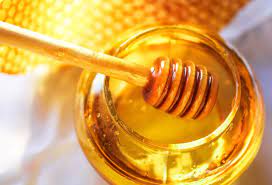Glyphosate is a widely used herbicide in agriculture and gardening. It is often sprayed on crops to kill weeds and improve yields. However, Glyphosate has also been linked to several health problems, including cancer, birth defects, and damage to the immune system. Honey bees are exposed to Glyphosate during foraging, and traces of Glyphosate have been found in honey.
Fortunately, Glyphosate-free honey is available, and it offers a safe and healthy alternative to regular honey. In this article, we will explore the dangers of Glyphosate in honey and why choosing Glyphosate-free honey is a wise choice.
What is Glyphosate and its Impact on Honey Bees and Honey?
Glyphosate is a herbicide that is widely used in agriculture and gardening. It is often sprayed on crops to kill weeds and improve yields. However, Glyphosate has been linked to several health problems, including cancer, birth defects, and damage to the immune system. Honey bees are exposed to Glyphosate during foraging, and traces of Glyphosate have been found in honey.
Why Choose Glyphosate-Free Honey?
Glyphosate-free honey offers a safe and healthy alternative to regular honey. By choosing Glyphosate-free honey, you can avoid the potential health risks associated with Glyphosate. Moreover, choosing Glyphosate-free honey promotes sustainable and environmentally friendly farming practices.
Understanding Glyphosate
What is Glyphosate?
Glyphosate is a herbicide that was first introduced in the 1970s. It is the active ingredient in Roundup, a widely used herbicide in agriculture and gardening.
How is Glyphosate Used in Agriculture?
Glyphosate is often sprayed on crops to kill weeds and improve yields. It is also used as a desiccant, which means it is sprayed on crops to dry them out before harvest.
What are the Health Risks Associated with Glyphosate?
Glyphosate has been linked to several health problems, including cancer, birth defects, and damage to the immune system. Moreover, Glyphosate can disrupt the endocrine system, which regulates hormones in the body.
Glyphosate in Honey
How does Glyphosate Enter Honey?
Honey bees are exposed to Glyphosate during foraging. Glyphosate residues can be found in nectar and pollen, which honey bees collect to make honey. Moreover, Glyphosate can contaminate soil and water, which can also affect the quality of honey.
How Dangerous is Glyphosate in Honey?
The amount of Glyphosate found in honey is usually small and considered safe by regulatory agencies. However, long-term exposure to Glyphosate, even in small amounts, can be harmful to human health.
Glyphosate has been classified as a probable human carcinogen by the International Agency for Research on Cancer (IARC). Moreover, Glyphosate can disrupt the gut microbiome, which plays a crucial role in the immune system and overall health.
How Much Glyphosate is Safe in Honey?
There is no consensus on the safe level of Glyphosate in honey. The maximum residue limit (MRL) for Glyphosate in honey varies from country to country, and some countries do not have an MRL for Glyphosate in honey.
However, it is best to choose Glyphosate-free honey to avoid any potential health risks associated with Glyphosate.
Choosing Glyphosate-Free Honey
How to Identify Glyphosate-Free Honey?
The best way to identify Glyphosate-free honey is to look for a certification from a reputable organization. For example, the USDA organic certification prohibits the use of Glyphosate in organic farming.
Moreover, some companies have their own certification programs to ensure that their honey is Glyphosate-free.
Where to Buy Glyphosate-Free Honey?
Glyphosate-free honey is available in health food stores, organic food stores, and online retailers. Moreover, some local beekeepers may also sell Glyphosate-free honey.
How to Ensure You are Buying Genuine Glyphosate-Free Honey?
To ensure that you are buying genuine Glyphosate-free honey, look for a certification from a reputable organization. Moreover, read the label carefully and check if it mentions Glyphosate or any other pesticides.
Benefits of Glyphosate-Free Honey
Health Benefits of Glyphosate-Free Honey
Glyphosate-free honey is free from potential health risks associated with Glyphosate. Moreover, honey has several health benefits, including antibacterial, antioxidant, and anti-inflammatory properties.
Environmental Benefits of Glyphosate-Free Honey
Choosing Glyphosate-free honey promotes sustainable and environmentally friendly farming practices. Moreover, it supports the preservation of honey bees and other pollinators, which play a crucial role in our ecosystem.
Social Benefits of Choosing Glyphosate-Free Honey
Choosing Glyphosate-free honey supports local beekeepers and promotes ethical and transparent food production.
Conclusion
Glyphosate-free honey offers a safe and healthy alternative to regular honey. By choosing Glyphosate-free honey, you can avoid the potential health risks associated with Glyphosate and promote sustainable and environmentally friendly farming practices.
FAQs
- What is Glyphosate?
Glyphosate is a herbicide that is widely used in agriculture and gardening. - How does Glyphosate Enter Honey?
Honey bees are exposed to Glyphosate during foraging. Glyphosate residues can be found in nectar and pollen, which honey bees collect to make honey. - How Dangerous is Glyphosate in Honey?
Glyphosate has been linked to several health problems, including cancer, birth defects, and damage to the immune system. Moreover, Glyphosate can disrupt the gut microbiome, which plays a crucial role in the immune system and overall health. - How Much Glyphosate is Safe in Honey?
There is no consensus on the safe level of Glyphosate in honey. The maximum residue limit (MRL) for Glyphosate in honey varies from country to country, and some countries do not have an MRL for Glyphosate in honey. - Where Can I Find Glyphosate-Free Honey?
Glyphosate-free honey is available in health food stores, organic food stores, and online retailers. Moreover, some local beekeepers may also sell Glyphosate-free honey.
Read : Free People Wholesale

